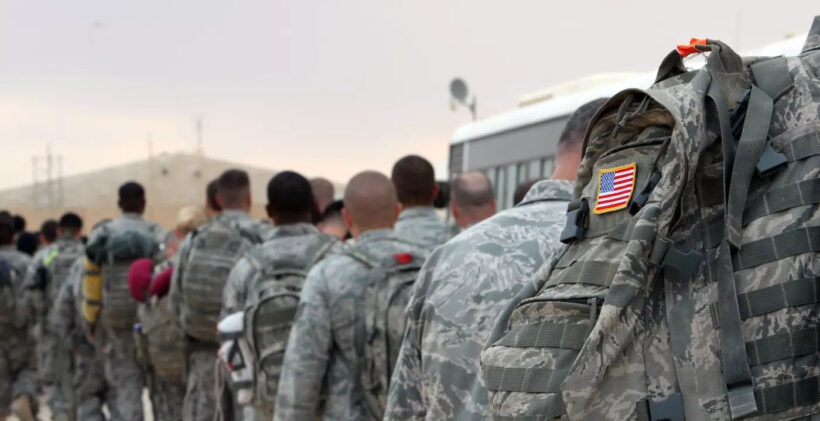
Around 2,500 American soldiers are still stationed in Iraq as part of a mission to fight the Islamic State group. This could soon come to end.
In the coming days, Iraqi and US officials will begin formal talks that could lead to the termination of the US military presence in Iraq, US Defence Secretary Lloyd Austin announced on Thursday.
The 2,500 US troops currently stationed in Iraq – joined by hundreds of troops from mostly European countries – have been on a mission since 2014 to advise and assist local forces to prevent a resurgence of the Islamic State (IS) militant group.
Formally referred to as the “US-Iraq Higher Military Commission”, the talks will work on devising a transition timeline with the ultimate aim of formulating “an enduring bilateral security partnership” between Washington and Baghdad, as specified by Austin’s statement.
As the war on Gaza has had a spillover effect across the region, the US presence in Iraq has come increasingly under pressure. Being an ally of both Iran and the US, Iraq has witnessed tit-for-tat attacks between US forces and Iranian-backed paramilitaries seeking to pressure the US over its support for Israel.
Since the start of the Israel-Palestine war, US military bases have been targeted 60 times in Iraq and more than 90 in Syria.
While Washington had previously been reluctant to negotiate a potential withdrawal while under fire due to concerns of emboldening Iran, “the calculus changed amid a realization that the attacks would likely not stop and that the status quo was leading to steady escalation”, sources have told Reuters.
In a recent piece for Middle East Eye, director of the Iraq Initiative at the Chatham House think-tank Renad Mansour called Iraq “the playground of choice” for a low-level US-Iran battle.
The most recent attacks took place on Tuesday when US forces launched retaliatory strikes on facilities owned by Iran-backed militias, following a weekend attack on an Iraqi air base that wounded four US forces and one Iraqi.
Several defence officials have reiterated that the tit-for-tat attacks on Iraqi soil did not influence the decision to pursue the negotiations for US withdrawal, which would have probably started sooner had the war on Gaza not begun.
The talks are expected to take a minimum of several months.
Iraq in the crossfire
For Iran, a potential withdrawal of US troops would be a strategic victory, experts say. To that end, the war in Gaza has presented itself as an opportunity to expel the US from Iraq, a goal that Iran and those backed by them in Iraq’s government have long pursued.
A former senior US official and an Iraqi official told MEE that there has been increased coordination between Iraq’s Iran-backed forces and Lebanese Hezbollah with that aim. Mohammad Hussein al-Kawtharani, a top Hezbollah official, arrived in Baghdad earlier this month to oversee the operations, according to media reports.
Iran’s presence in Iraq dates back to the interim years between 2011 and 2014, after the US had pulled all its troops and before returning them in 2014 for the mission to fight IS.
In that period, Shia paramilitaries, trained and funded by Iran, emerged as the most powerful armed group, known as the Popular Mobilisation Units, with more than 150,000 fighters today.
In early January, the US launched a drone strike in Baghdad, killing a senior PMU commander known as Abu Taqwa, which prompted Iraq’s Prime Minister Mohammed Shia al-Sudani to publicly join calls for an exit.
Sudani is supported by the Coordination Framework, a coalition of Tehran-backed Shia political parties tied to many of Iraq’s paramilitaries.
